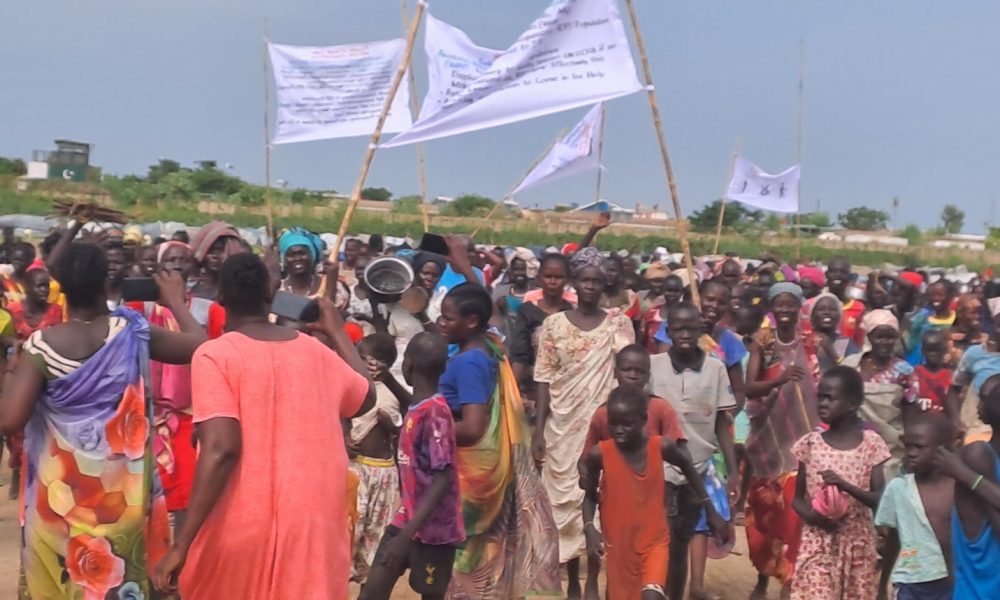By Mamer Abraham
Internally Displaced Persons in Bentiu, Unity State of South Sudan are protesting against suspension of humanitarian assistance, as the agencies face constraints of resources.
Visibly hungry protesters, most of whom are women and children, some with empty saucepans, on Wednesday, matched in the streets of Bentiu town.
United Nations Office for the Coordination of Humanitarian Affairs (UNORCHA) said aid agencies are channeling resources to communities worse hit by hunger.
Two-thirds of South Sudan’s population is listed at the extreme levels of food insecurity and malnutrition, placing the country among the worst food insecurity emergencies on the globe.
“Dwindling resources amidst growing needs have forced humanitarian agencies to prioritize the delivery of vital life-saving support which risks leaving millions behind,” the United Nations warned.
According to the agency, the prioritization of resources is a famine prevention approach, where communities closest to starvation must receive assistance.
The statement indicated that various sectors had been affected as millions of vulnerable people were exposed to harsh living conditions.
“For food security alone, there are 7.76 million people who face critical, emergency, and catastrophic levels of need, yet resourcing shortfalls mean emergency food assistance must be prioritized for 3.2 million people who face the highest levels of food insecurity,” OCHA echoed.
Meanwhile, Acting Country Director for the World Food Programme (WFP) in South Sudan, Makena Walker said the WFP emergency food assistance ended in August.
“We have worked closely with the government of South Sudan to ensure we’re reaching communities most in need of assistance. The simple fact is that there are not enough resources available to the humanitarian community to meet the needs in South Sudan,” she stated.
Acting Humanitarian Coordinator, Peter Van der Auweraert said South Sudanese had suffered numerous disasters as the aid agencies found it hard to cater for their needs.
“Vulnerable people in South Sudan suffered multiple interconnected shocks for years. The outlook for these people is grim with new crises unfolding while humanitarian agencies struggle to meet basic needs,” Van der Auweraert said.
He said the most valuable solution to the protracted suffering was embarking on resilient programmes that would help the country to be self-sufficient.
“With international humanitarian funding expected to continue to decline, it is even more important for the government of South Sudan to accelerate and increase its investments in basic services and support for sustainable solutions to address people’s basic needs across the country,” he added.
Appeal for fund
Last month, the World Food Programme (WFP)’s Regional Director for Eastern African Michael Duford appealed for $400 million funding to address humanitarian crisis in South Sudan for the next six months.
“Food needs in South Sudan are enormous, and due to inadequate funding, we are unable to efficiently provide essential food assistance to those in dire need,” he said.
“It’s crucial that South Sudan’s situation stabilizes, empowering its people to meet their own needs without solely relying on WFP.”
He noted that WFP, United Nations Food and Agriculture Organization (UNFAO) were collaborating to increase local food production through resilience programme.
“We need to harness the financial and technical resources of UNFAO and WFP to help South Sudan overcome its underproduction in the agriculture sector,” he stated.




